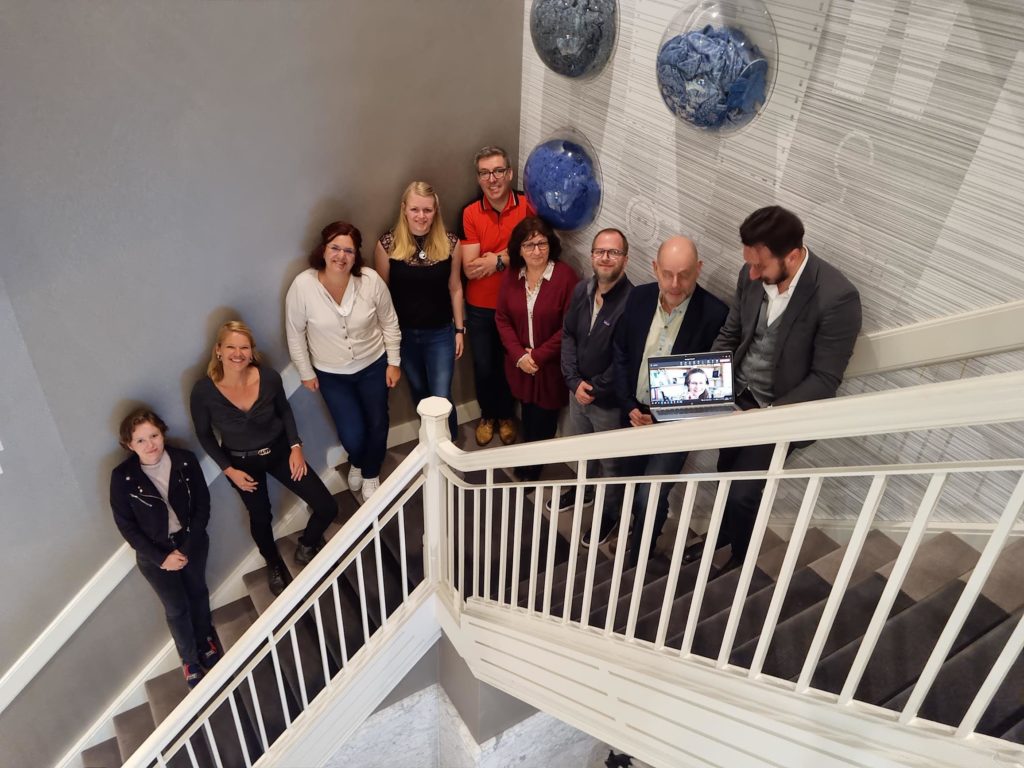On the 3rd and 4th of July the consortium of the international project ‘Digitrans’ came together in Enschede, The Netherlands to explore the relevance and importance of networking for career counselors. Our task is mainly to develop a new method to work in so called ‘roundabouts’. This method benefits not only career counselors, but it also inhances the quality of the guidance and outcomes for clients and the participation of other stakeholders, such as employers, educational and public institutions and social partners. Working with this method we can make sure that every partner in the network has a important place in order to develop digital skills.
Introduction
In today’s competitive job market, career counselors play a vital role in guiding individuals towards fulfilling and successful careers. Their expertise and guidance can significantly impact the lives of their clients. However, to truly excel in this field, career counselors must recognize the importance of networking. Building a strong professional network opens doors to new opportunities, expands knowledge, and enhances the ability to support and empower clients effectively. In this blog post, we will explain the relevance of networking for career counselors and the benefits of introducing so called CGC-roundabouts as a new method to succesfully use this network in each step of career guidance. We will focus on developing digital skills.
1. Expanding Professional Opportunities
CGC-roundabouts provides career counselors with a platform to connect with other professionals in their field. By attending conferences, workshops, and industry events, they can forge relationships with employers, recruiters, and experts. These connections can lead to a variety of opportunities, such as internships, guest speaking engagements, job openings, and collaborative projects. By widening their network, career counselors increase their chances of finding new avenues to enhance their careers and the services they offer to their clients.
2. Staying Abreast of Industry Trends
Networking allows career counselors to stay updated on the latest trends, developments, and best practices in their field. Engaging in conversations with other professionals can provide valuable insights into emerging industries, in-demand skills, and evolving job market dynamics. By being aware of these trends, counselors can adapt their strategies and advice to better serve their clients, ensuring that they remain relevant and competitive in today’s rapidly changing work landscape.
3. Collaboration and Knowledge Sharing
Networking fosters an environment of collaboration and knowledge sharing among career counselors. By connecting with peers and mentors, counselors can exchange ideas, discuss case studies, and seek guidance. Sharing experiences and challenges enables them to learn from one another and improve their counseling techniques. Collaboration also paves the way for joint research projects, co-authoring articles, and hosting joint workshops or webinars, leading to professional growth and the development of innovative approaches to career counseling.
4. Building a Supportive Learning Community
Networking creates a sense of learning community among career counselors, providing a platform for them to share their victories, challenges, and aspirations. This supportive network offers a space for counselors to seek advice, encouragement, and inspiration. The bonds formed within this learning community can be invaluable, as they provide emotional support and a shared understanding of the unique challenges faced in the field. Moreover, connecting with like-minded professionals can reduce professional isolation and foster a sense of belonging and purpose.
5. Referrals and Recommendations
Networking opens doors to referrals and recommendations. When career counselors develop strong relationships with colleagues, clients, and employers, they become trusted sources of information and guidance. These connections can recommend counselors to potential clients, employers, or educational institutions, thus expanding their reach and credibility. Positive word-of-mouth referrals can significantly contribute to the success and growth of a career counseling practice.
Conclusion:
Networking is an essential aspect of a career counselor’s professional journey. By actively engaging in networking activities, career counselors can expand their professional opportunities, stay updated on industry trends, collaborate with peers, build a supportive community, and receive referrals and recommendations. These networking efforts ultimately enhance their ability to guide and empower their clients effectively, ensuring they are equipped with the knowledge and resources needed to succeed in their chosen careers. Embracing networking as a career counselor is not only beneficial for individual growth but also for the overall advancement of the career counseling profession.




